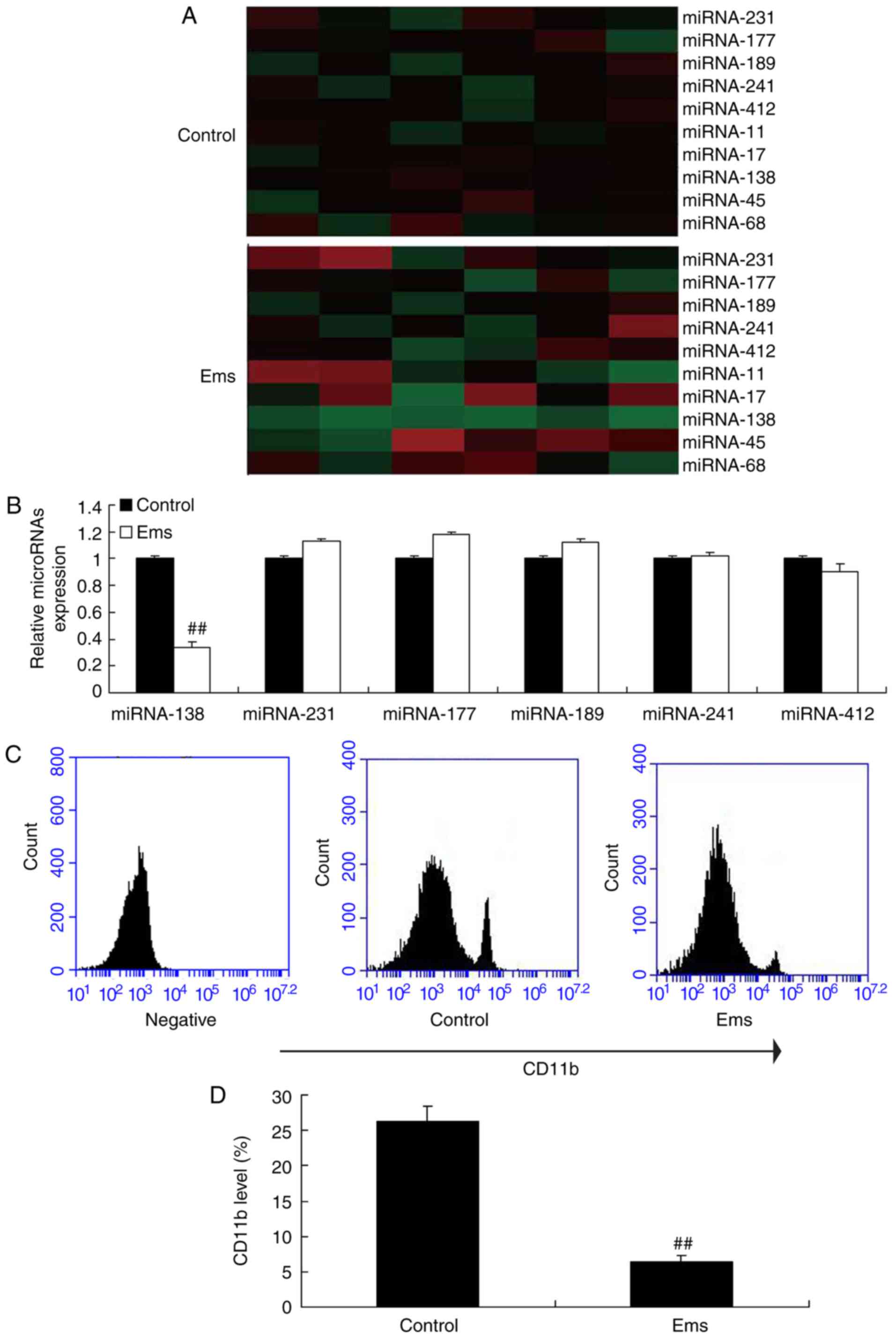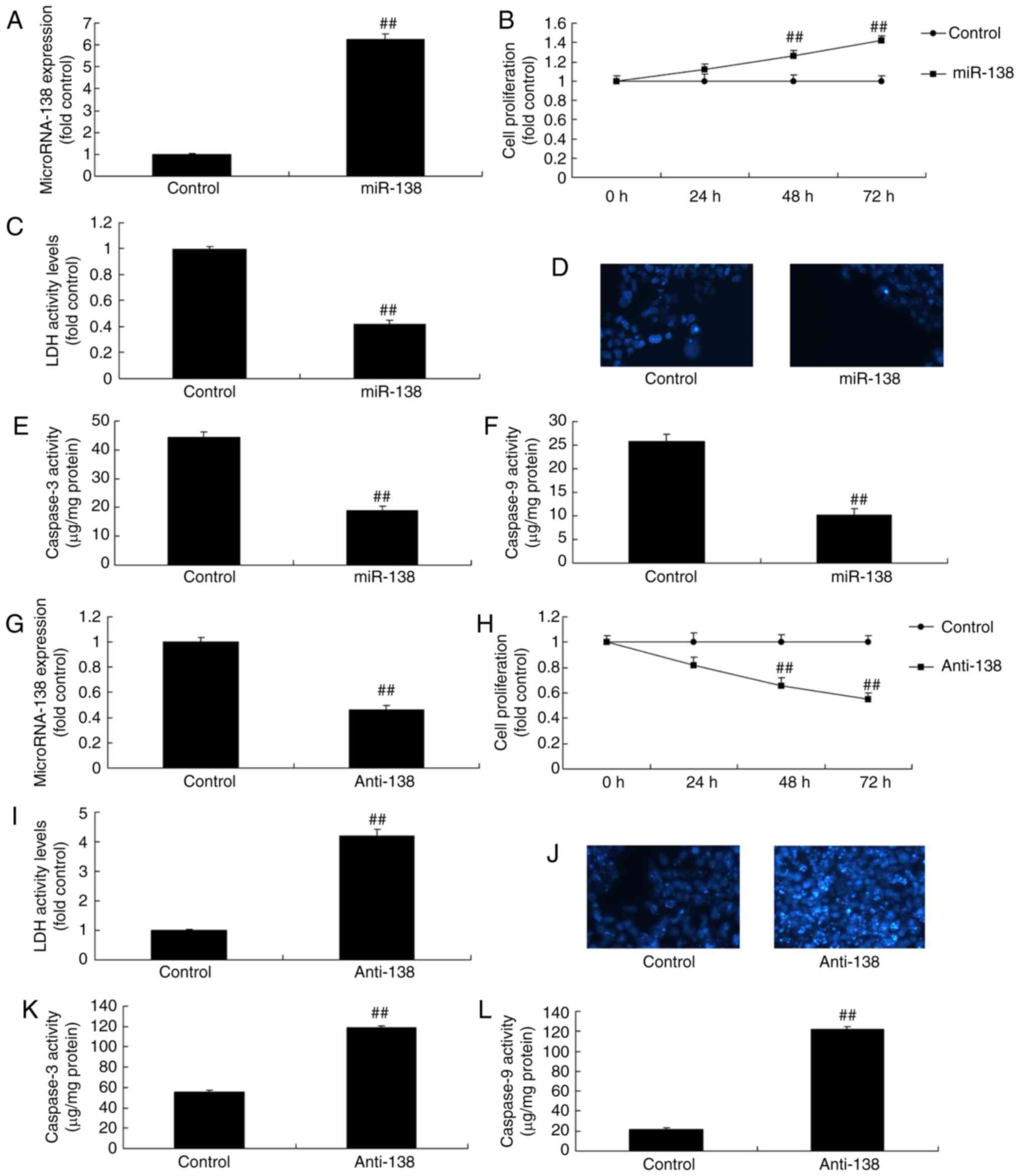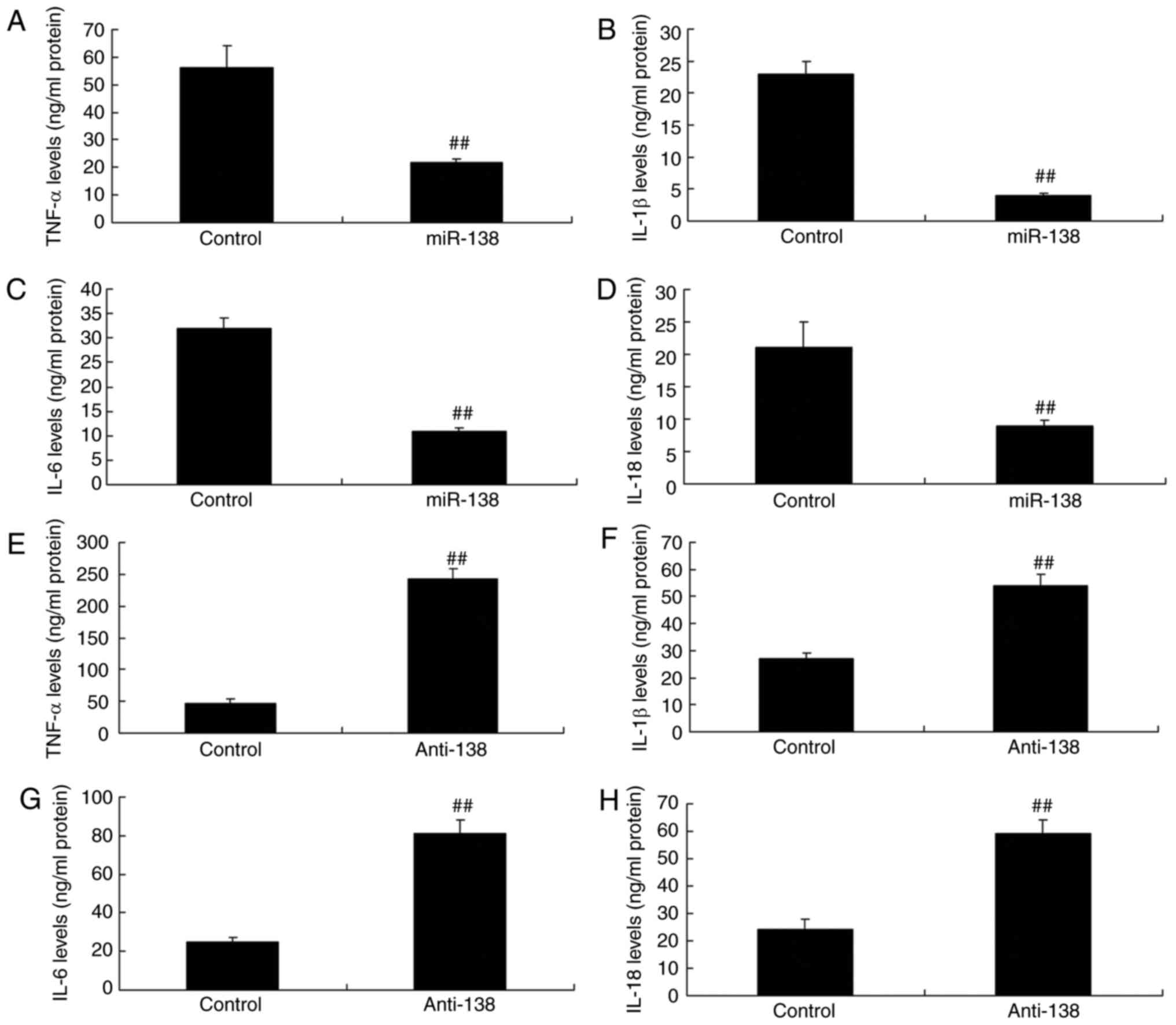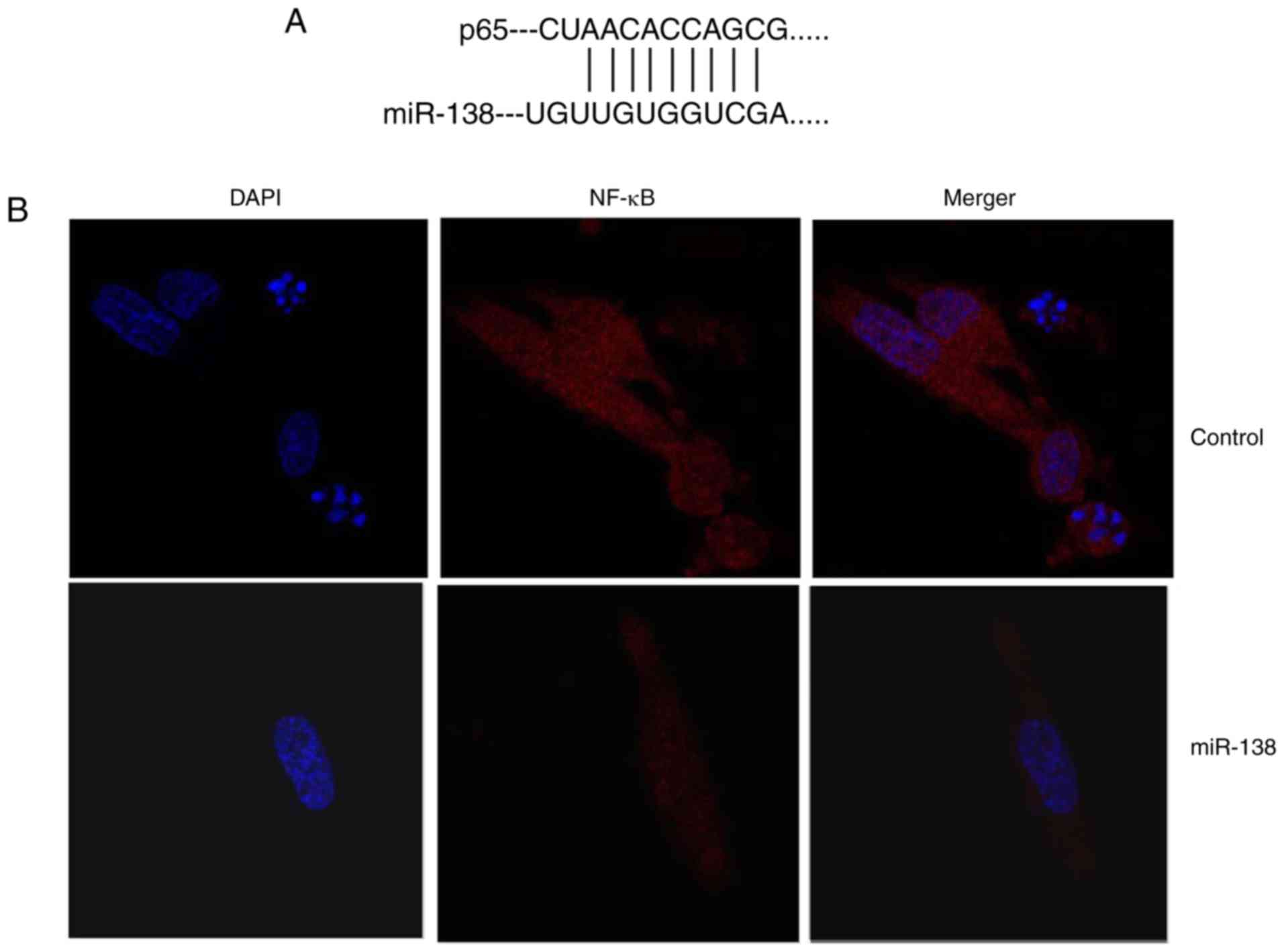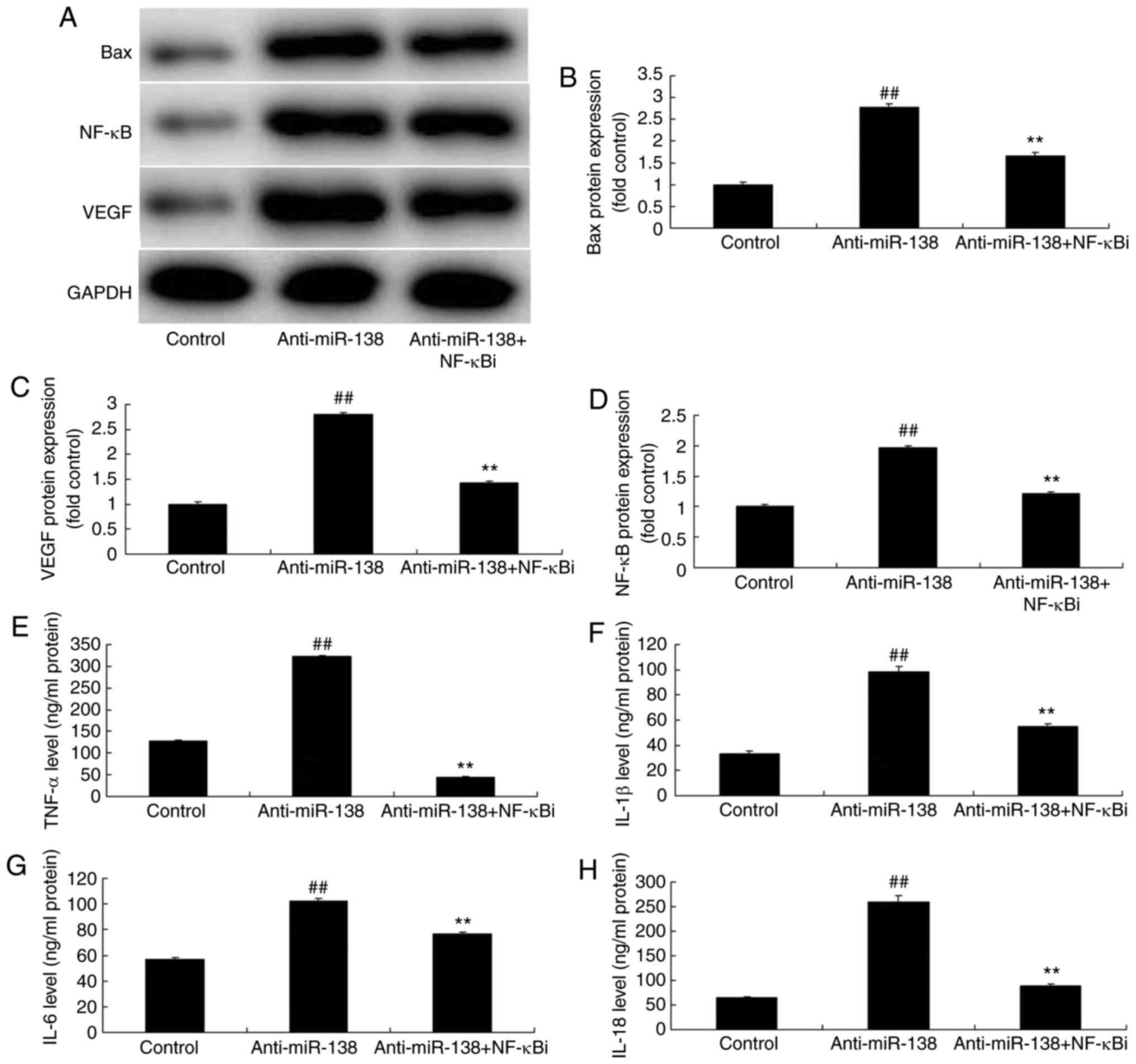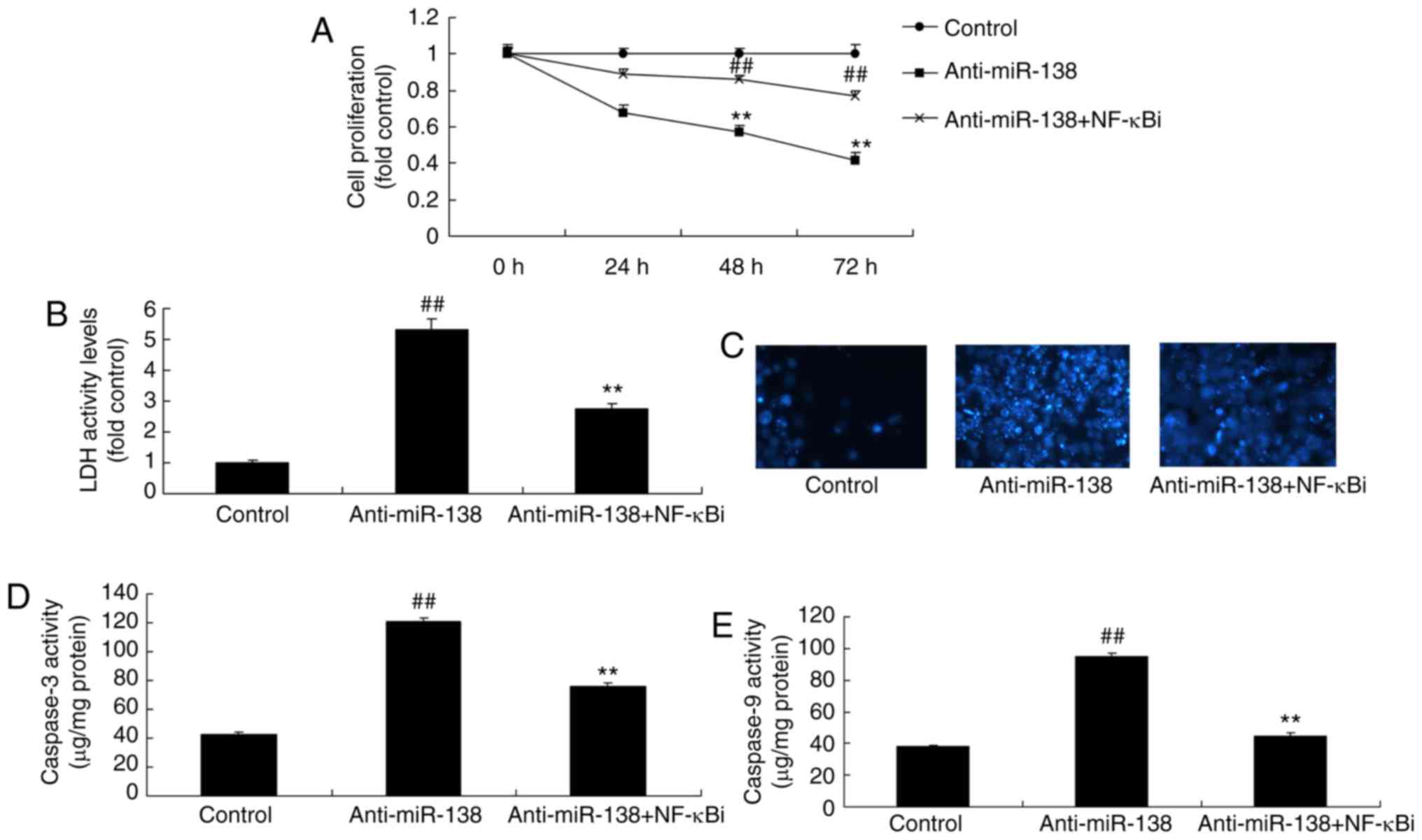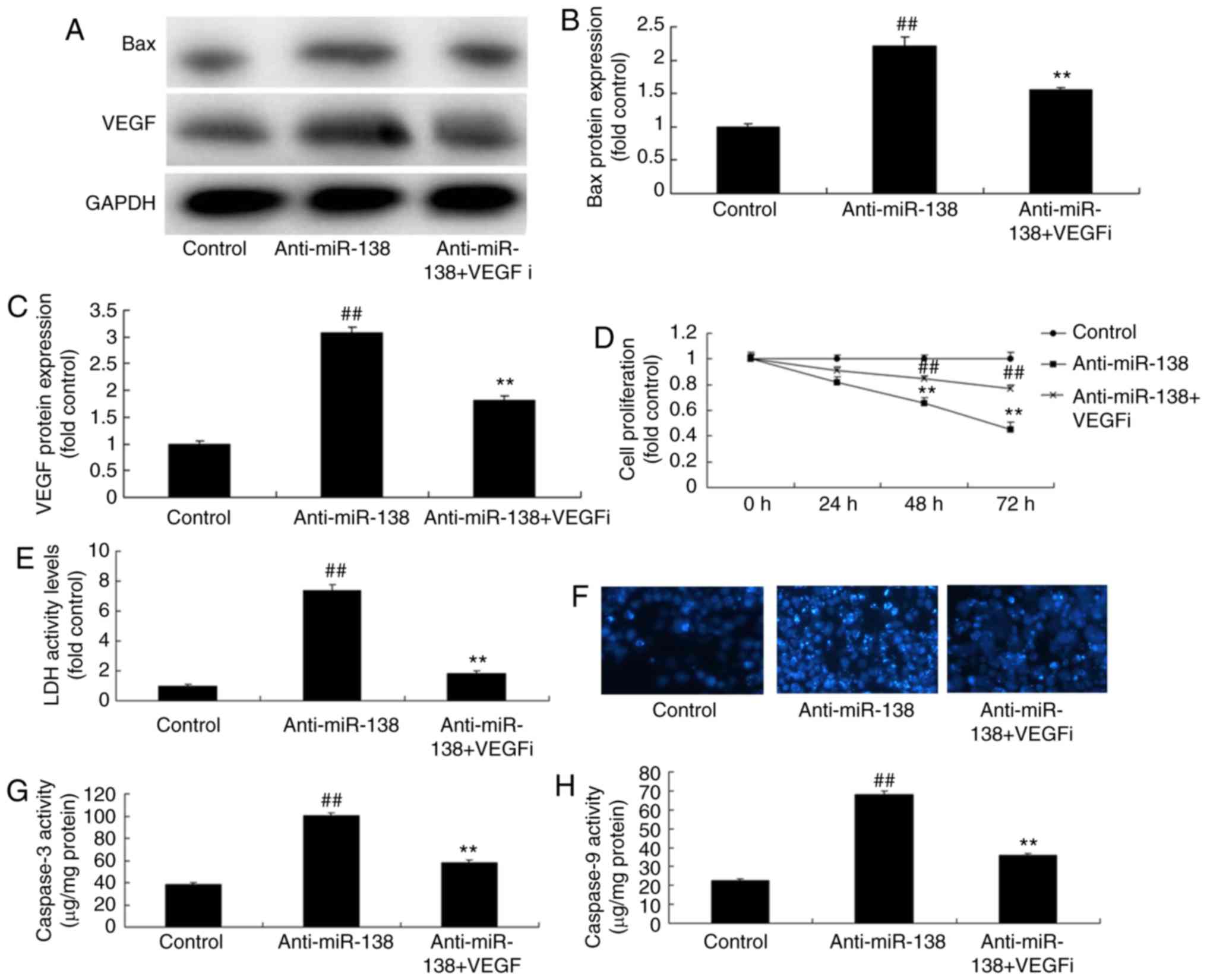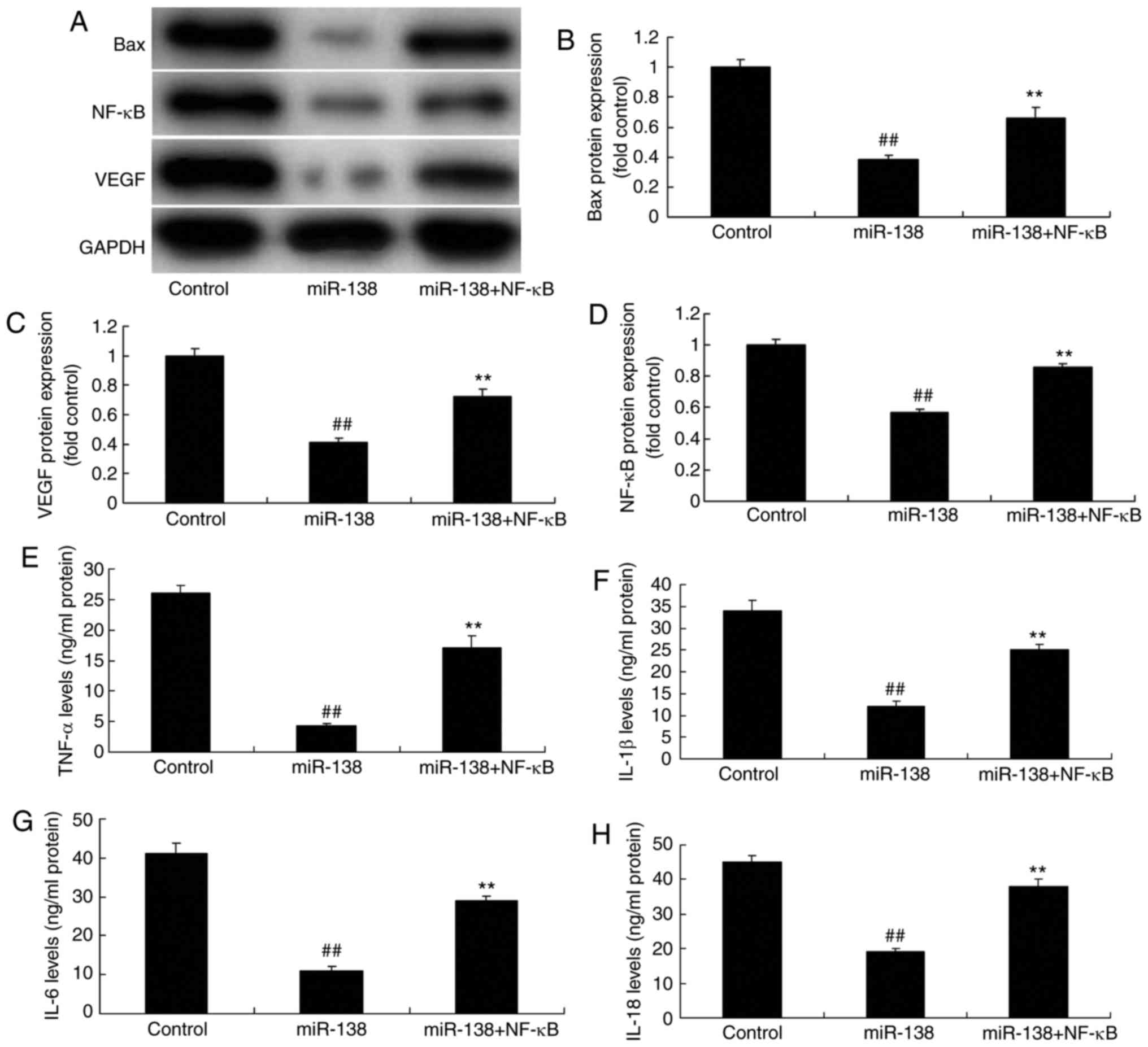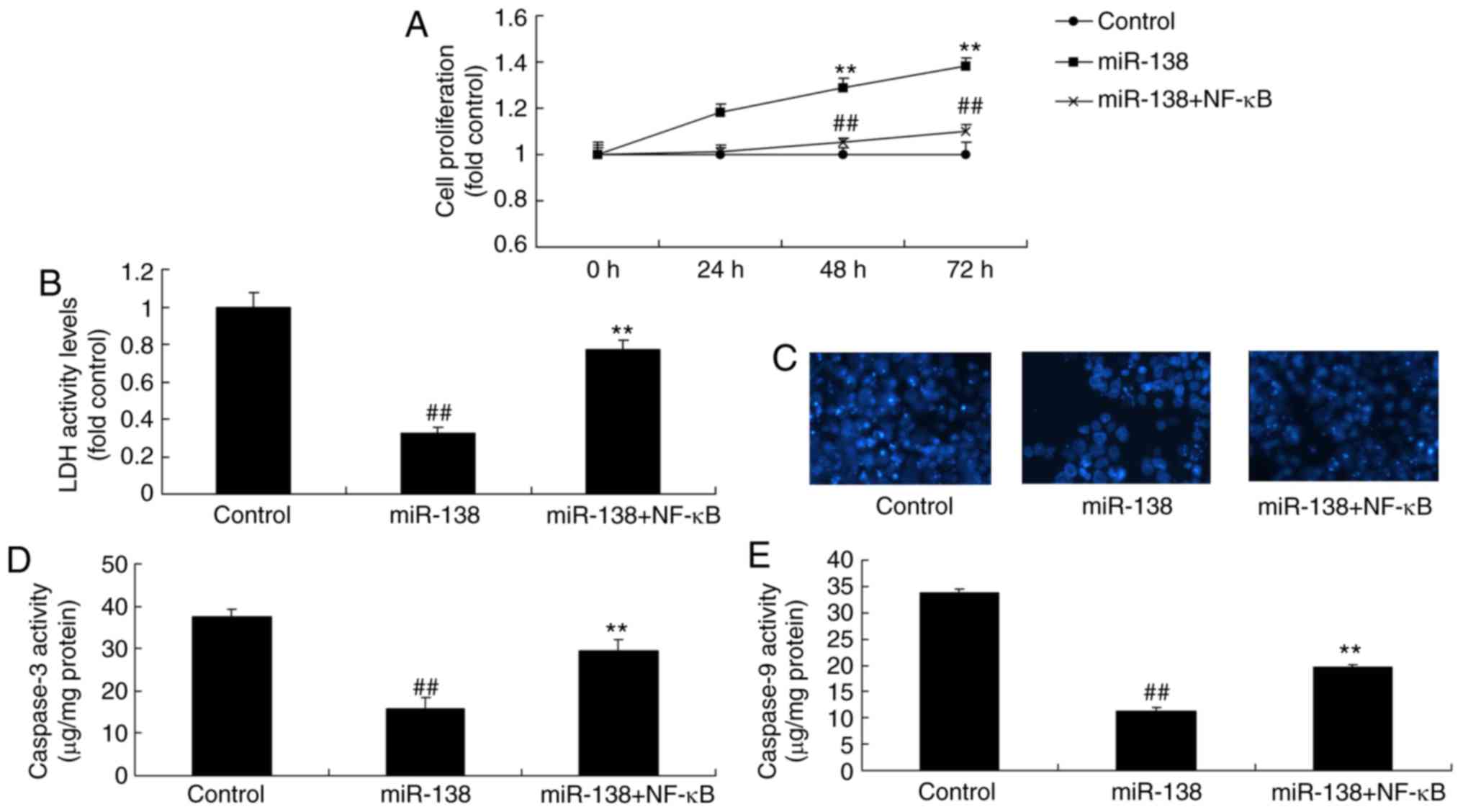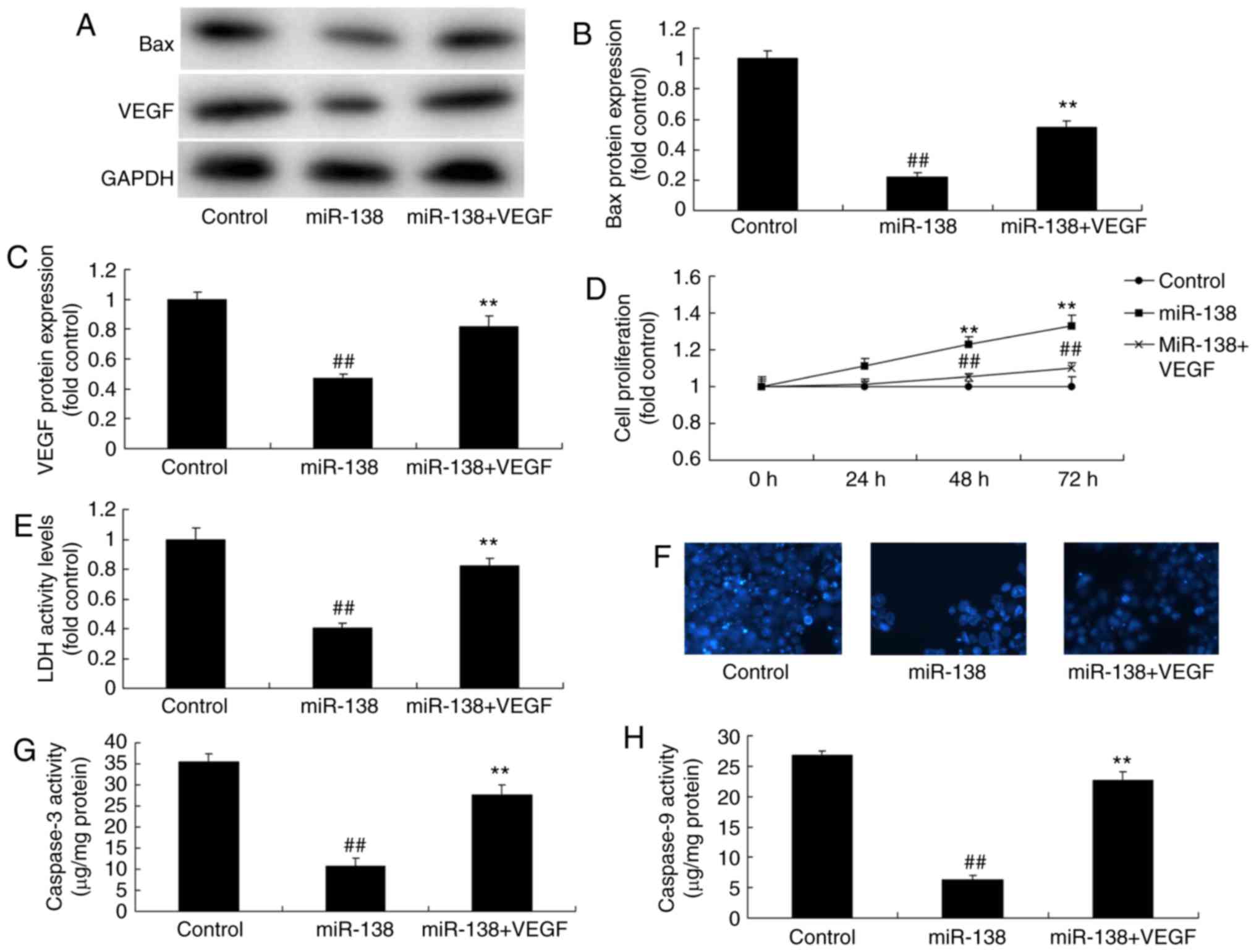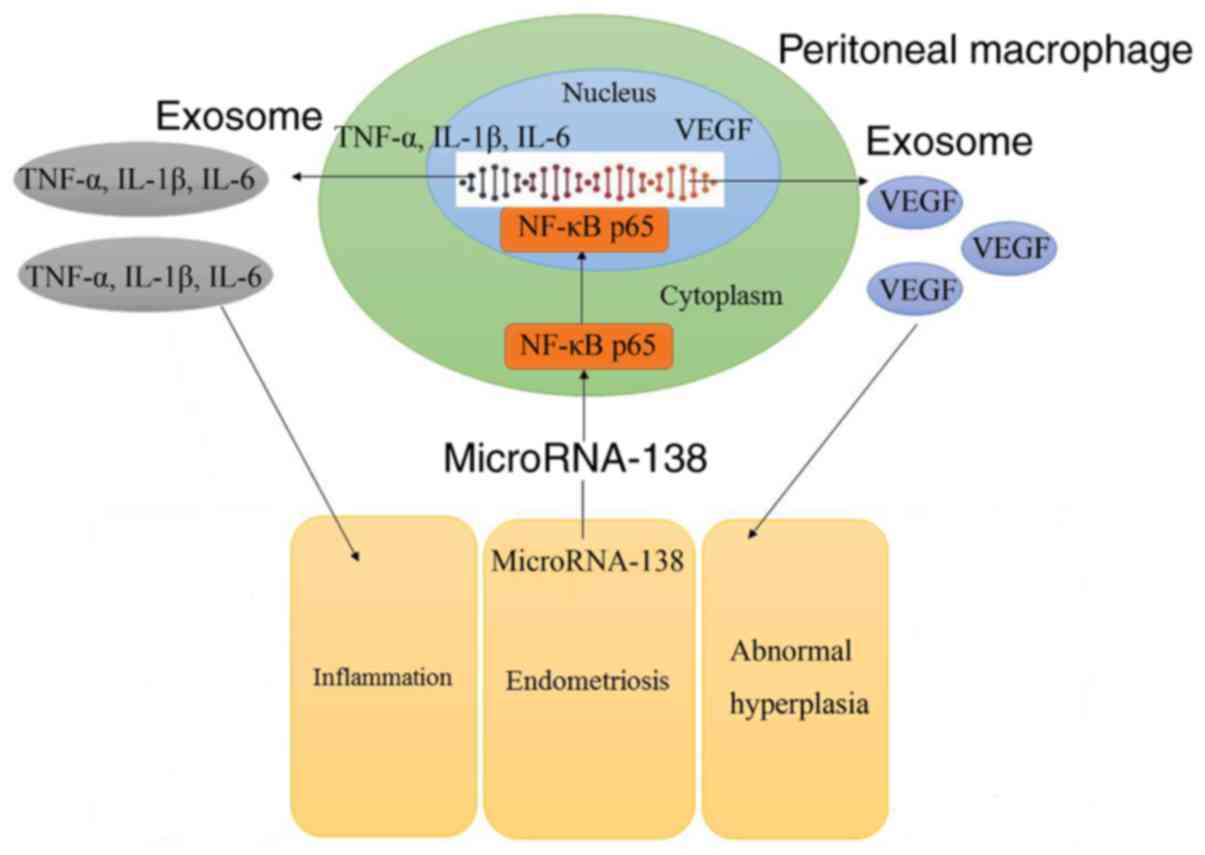|
1
|
Schwertner A, Conceicao Dos Santos CC,
Costa GD, Deitos A, de Souza A, de Souza IC, Torres IL, da Cunha
Filho JS and Caumo W: Efficacy of melatonin in the treatment of
endometriosis: A phase II, randomized, double-blind,
placebo-controlled trial. Pain. 154:874–881. 2013. View Article : Google Scholar : PubMed/NCBI
|
|
2
|
Hao Z and Huang S: E3 ubiquitin ligase
Skp2 as an attractive target in cancer therapy. Front Biosci
(Landmark Ed). 20:474–490. 2015. View
Article : Google Scholar
|
|
3
|
Campos Petean C, Ferriani RA, dos Reis RM,
de Moura MD, Jordao AA Jr and Navarro PA: Lipid peroxidation and
vitamin E in serum and follicular fluid of infertile women with
peritoneal endometriosis submitted to controlled ovarian
hyperstimulation: A pilot study. Fertil Steril. 90:2080–2085. 2008.
View Article : Google Scholar : PubMed/NCBI
|
|
4
|
Barrueto FF, Audlin KM, Gallicchio L,
Miller C, MacDonald R, Alonsozana E, Johnston M and Helzlsouer KJ:
Sensitivity of narrow band imaging compared with white light
imaging for the detection of endometriosis. J Minim Invasive
Gynecol. 22:846–852. 2015. View Article : Google Scholar : PubMed/NCBI
|
|
5
|
Chen JM, Gao HY, Ding Y, Yuan X, Wang Q,
Li Q and Jiang GH: Efficacy and safety investigation of Kuntai
capsule for the add-back therapy of gonadotropin releasing hormone
agonist administration to endometriosis patients: A randomized,
double-blind, blank- and tibolone-controlled study. Chin Med J
(Engl). 128:427–432. 2015. View Article : Google Scholar
|
|
6
|
Ballester M, Santulli P, Bazot M, Coutant
C, Rouzier R and Darai E: Preoperative evaluation of posterior
deep-infiltrating endometriosis demonstrates a relationship with
urinary dysfunction and parametrial involvement. J Minim Invasive
Gynecol. 18:36–42. 2011. View Article : Google Scholar
|
|
7
|
Seifer BJ, Su D and Taylor HS: Circulating
miRNAs in murine experimental endometriosis. Reprod Sci.
24:376–381. 2017. View Article : Google Scholar
|
|
8
|
Wang WT, Sun YM, Huang W, He B, Zhao YN
and Chen YQ: Genome-wide long non-coding RNA analysis identified
circulating LncRNAs as novel Non-invasive diagnostic biomarkers for
gynecological disease. Sci Rep. 6:233432016. View Article : Google Scholar : PubMed/NCBI
|
|
9
|
Zhu F, Liu M, Pan Y, Wang X and Chen Y:
Small hairpin RNA targeting inhibition of NF-κB gene in
endometriosis therapy of Macaca fascicularis. Zhonghua Fu Chan Ke
Za Zhi. 50:48–53. 2015.In Chinese. PubMed/NCBI
|
|
10
|
Celik O, Ersahin A, Acet M, Celik N,
Baykus Y, Deniz R, Ozerol E and Ozerol I: Disulfiram, as a
candidate NF-κB and proteasome inhibitor, prevents endometriotic
implant growing in a rat model of endometriosis. Eur Rev Med
Pharmacol Sci. 20:4380–4389. 2016.PubMed/NCBI
|
|
11
|
Alvarado-Diaz CP, Núñez MT, Devoto L and
González-Ramos R: Iron overload-modulated nuclear factor kappa-B
activation in human endometrial stromal cells as a mechanism
postulated in endometriosis pathogenesis. Fertil Steril.
103:439–447. 2015. View Article : Google Scholar
|
|
12
|
Fujii EY, Nakayama M and Nakagawa A:
Concentrations of receptor for advanced glycation end products,
VEGF and CML in plasma, follicular fluid, and peritoneal fluid in
women with and without endometriosis. Reprod Sci. 15:1066–1074.
2008. View Article : Google Scholar : PubMed/NCBI
|
|
13
|
Dziunycz P, Milewski L, Radomski D, Barcz
E, Kamiński P, Roszkowski PI and Malejczyk J: Elevated ghrelin
levels in the peritoneal fluid of patients with endometriosis:
Associations with vascular endothelial growth factor (VEGF) and
inflammatory cytokines. Fertil Steril. 92:1844–1849. 2009.
View Article : Google Scholar
|
|
14
|
Tang XJ, Yang MH, Cao G, Lu JT, Luo J, Dai
LJ, Huang KM and Zhang LI: Protective effect of microRNA-138
against cerebral ischemia/reperfusion injury in rats. Exp Ther Med.
11:1045–1050. 2016. View Article : Google Scholar : PubMed/NCBI
|
|
15
|
Livak KJ and Schmittgen TD: Analysis of
relative gene expression data using real-time quantitative PCR and
the 2(−Delta Delta C(T)) method. Methods. 25:402–408. 2001.
View Article : Google Scholar
|
|
16
|
Takaesu Y, Nishi H, Kojima J, Sasaki T,
Nagamitsu Y, Kato R and Isaka K: Dienogest compared with
gonadotropin-releasing hormone agonist after conservative surgery
for endometriosis. J Obstet Gynaecol Res. 42:1152–1158. 2016.
View Article : Google Scholar : PubMed/NCBI
|
|
17
|
Leone Roberti Maggiore U, Remorgida V,
Scala C, Tafi E, Venturini PL and Ferrero S: Desogestrel-only
contraceptive pill versus sequential contraceptive vaginal ring in
the treatment of rectovaginal endometriosis infiltrating the
rectum: A prospective open-label comparative study. Acta Obstet
Gynecol Scand. 93:239–247. 2014. View Article : Google Scholar : PubMed/NCBI
|
|
18
|
Wieser F, Wu J, Shen Z, Taylor RN and
Sidell N: Retinoic acid suppresses growth of lesions, inhibits
peritoneal cytokine secretion, and promotes macrophage
differentiation in an immunocompetent mouse model of endometriosis.
Fertil Steril. 97:1430–1437. 2012. View Article : Google Scholar : PubMed/NCBI
|
|
19
|
Cakmak H, Seval-Celik Y, Arlier S,
Guzeloglu-Kayisli O, Schatz F, Arici A and Kayisli UA: p38
Mitogen-activated protein kinase is involved in the pathogenesis of
endometriosis by modulating inflammation, but not cell survival.
Reprod Sci. 25:587–597. 2018. View Article : Google Scholar
|
|
20
|
Grandi G, Mueller MD, Bersinger NA,
Facchinetti F and McKinnon BD: The association between progestins,
nuclear receptors expression and inflammation in endometrial
stromal cells from women with endometriosis. Gynecol Endocrinol.
33:712–715. 2017. View Article : Google Scholar : PubMed/NCBI
|
|
21
|
Celik O, Celik E, Turkcuoglu I, Yilmaz E,
Ulas M, Simsek Y, Karaer A, Celik N, Aydin NE, Ozerol I and Unlu C:
Surgical removal of endometrioma decreases the NF-κB1 (p50/105) and
NF-κB p65 (Rel A) expression in the eutopic endometrium during the
implantation window. Reprod Sci. 20:762–770. 2013. View Article : Google Scholar
|
|
22
|
Gong H, Song L, Lin C, Liu A, Lin X, Wu J,
Li M and Li J: Downregulation of miR-138 sustains NF-κB activation
and promotes lipid raft formation in esophageal squamous cell
carcinoma. Clin Cancer Res. 19:1083–1093. 2013. View Article : Google Scholar : PubMed/NCBI
|
|
23
|
Sen A, Ren S, Lerchenmuller C, Sun J,
Weiss N, Most P and Peppel K: MicroRNA-138 regulates
hypoxia-induced endothelial cell dysfunction by targeting S100A1.
PLoS One. 8:e786842013. View Article : Google Scholar : PubMed/NCBI
|
|
24
|
Makabe T, Koga K, Miyashita M, Takeuchi A,
Sue F, Taguchi A, Urata Y, Izumi G, Takamura M, Harada M, et al:
Drospirenone reduces inflammatory cytokines, vascular endothelial
growth factor (VEGF) and nerve growth factor (NGF) expression in
human endometriotic stromal cells. J Reprod Immunol. 119:44–48.
2017. View Article : Google Scholar : PubMed/NCBI
|
|
25
|
Rein DT, Schmidt T, Bauerschmitz G, Hampl
M, Beyer IM, Paupoo AA, Curiel DT and Breidenbach M: Treatment of
endometriosis with a VEGF-targeted conditionally replicative
adenovirus. Fertil Steril. 93:2687–2694. 2010. View Article : Google Scholar
|
|
26
|
Wei ZJ, Liu J and Qin J: miR-138
suppressed the progression of osteoarthritis mainly through
targeting p65. Eur Rev Med Pharmacol Sci. 21:2177–2184.
2017.PubMed/NCBI
|















